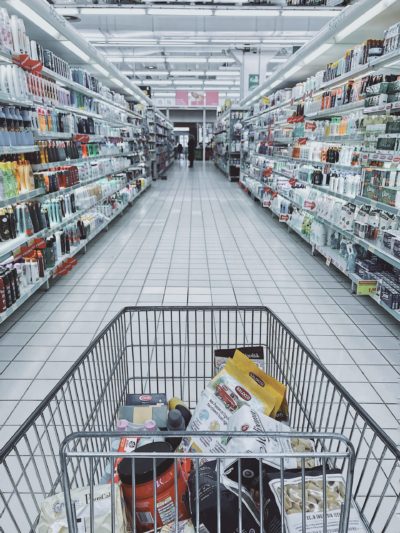Back in the day, the neighborhoods were full of small pharmacies where pharmacists and residents knew each other. Based on the close-knit relationships with the residents, the staff and pharmacist-provided customized service. As time moved on, the small neighborhood pharmacies were replaced by Walgreens and CVS stores. As times changed, the tight relationship with the pharmacist and residents diminished. One pharmacist at CVS said, “You can’t compete with the big box pharmacies.” The lack of neighborhood pharmacies is plaguing the black and brown communities.
 Residents take cars or public transportation to get to the nearest pharmacy. We initially lost the small pharmacies, but now the big box pharmacies are leaving our neighborhoods too. When communities do not have pharmacies, this creates a problem known as a pharmacy desert. Pharmacy deserts are communities where residents live more than half a mile from a pharmacy and lack access to affordable transportation options.
Residents take cars or public transportation to get to the nearest pharmacy. We initially lost the small pharmacies, but now the big box pharmacies are leaving our neighborhoods too. When communities do not have pharmacies, this creates a problem known as a pharmacy desert. Pharmacy deserts are communities where residents live more than half a mile from a pharmacy and lack access to affordable transportation options.
As a result of pharmacy deserts, people cannot get their primary health care needs, including vitamins, prescriptions, essential food items, and even the COVID-19 vaccine.
Residents used to count on the local pharmacies to provide a small selection of essentials to families instead of traveling to the local grocery store. The pharmacies are needed in our most vulnerable neighborhoods because most residents have serious illnesses. The lack of neighborhood pharmacies makes it harder to access the medication necessary for treatment. If the medicine is not taken, these illnesses become worse and harder to manage.
When multiple residents have to rely on one drug store, you can expect longer lines in stores and significant drive-through traffic. Most residents accept the risk of waiting in long lines to get medication or over-the-counter drugs from the drugstore. Depending on the store’s size, the long lines put customers at risk of not maintaining social distance, which does not align with the CDC’s social distance recommendations.
The communities hardest hit by the lack of pharmacies include black and brown people. There are fewer pharmacies in black and brown neighborhoods in comparison to white neighborhoods.
Large retail pharmacies have been closing throughout the south and west sides of Chicago. A recent survey by the ABC I-Team discovered over 300 pharmacies in Chicago. There are 254 pharmacies on the north side in comparison to the 141 located south of the loop. There are even fewer pharmacies available since the summer of 2020.
Chicago residents took to the streets to protest their outrage of police brutality and the horrific death of George Floyd. Some others used this opportunity to loot stores and damage public property. A few of the targeted businesses were the neighborhood pharmacies.
Depending on what area you were in, there were shattered glass doors and windows, along with store shelves that were ravished. The store’s substantial damage made it impossible for many pharmacies to fulfill prescriptions and take care of the community’s basic needs. Many of these pharmacies are still trying to recover from the damage inflicted upon them during the 2020 summer riots of 2020
This global pandemic continues to highlight the health care disparities that continue to affect African American and Latin communities. Our neighborhoods are plagued with abandoned homes, fast food restaurants, and liquor stores. To thrive and lead healthier lifestyles, we need access to fresh food, health care, education, and jobs. The pharmacy deserts around the Chicagoland area make it harder to access the primary essentials necessary to make life easier. This has also made it harder to administer the COVID-19 vaccine due to the low amounts of local drug stores.
Many black and brown communities are food and health care deserts, without a single grocery or pharmacy store. This disparity also highlights the racial gap across the country, including urban areas, where there are more pharmacies in whiter and wealthier neighborhoods than the impoverished, black, and brown neighborhoods.
Theresa Horton is a freelance writer living in Chicago. Follow her on her social media @passionateresources